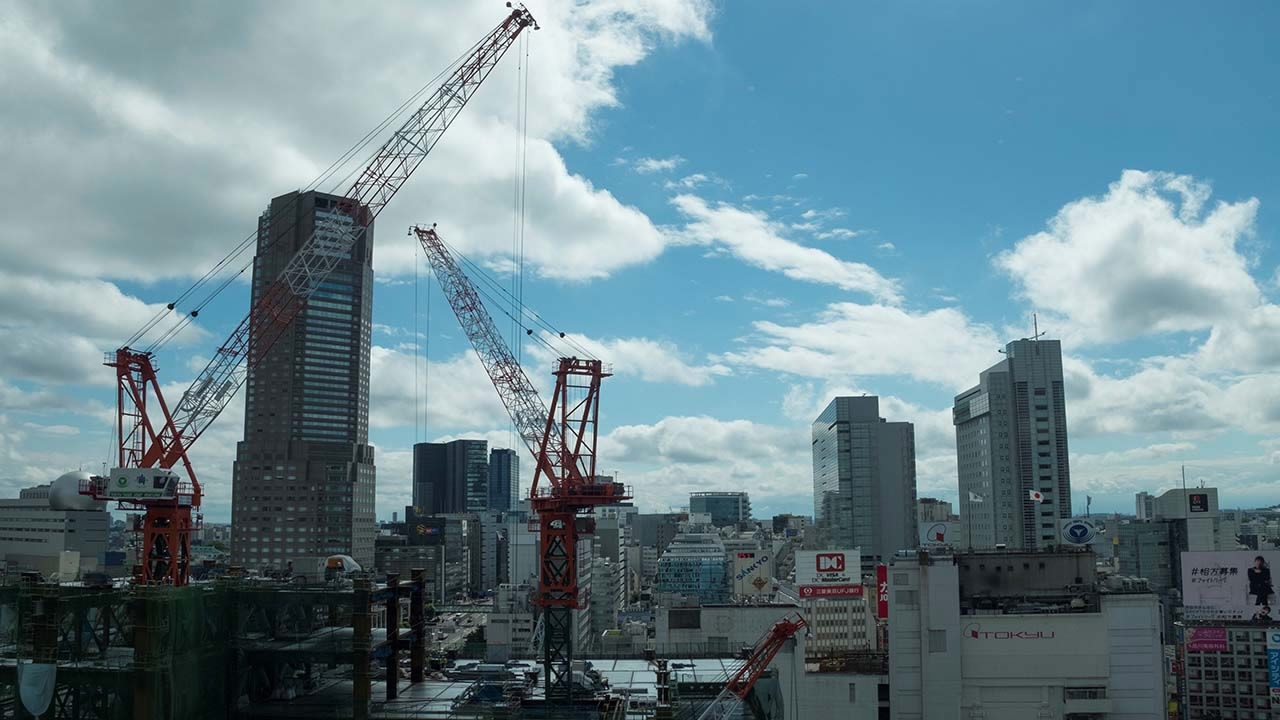
File photo: CGTN
TOKYO, Dec. 12 (Xinhua) -- Japan's core private-sector machinery orders dropped in October from a month earlier, marking the fourth straight monthly decline, owing to consternation about a global economic slowdown, the government said in a report on Thursday.
According to the Cabinet Office, the orders, excluding those for ships and utilities because of their volatility, fell 6.0 percent in October from the previous month, totaling 798.85 billion yen (7.35 billion U.S. dollars).
October's reading marked the lowest level since August 2015, with the drop in core orders leading to the Cabinet Office downgrading its assessment for the second straight month stating that they are "showing signs of stalling in their recovery."
Orders from manufacturers fell 1.5 percent to 354.87 billion yen (3.26 billion U.S. dollars), the Cabinet Office said, with orders from computer and metal processing machinery sectors seeing a notable downturn in the recording period, owing to a slowdown in the global economy.
Those from non-manufacturers, excluding ships and electric utilities, declined 5.4 percent to 463.27 billion yen (4.26 billion U.S. dollars), as demand slumped for agricultural machinery following October's consumption tax hike here from 8 to 10 percent.
Overseas orders, which act as a barometer of future exports, however, rose 2.9 percent to 877.47 billion yen (8.07 billion U.S. dollars) in the reporting period, as orders for heavy equipment and industrial machinery saw an uptick, the Cabinet Office said.
Total orders, including those in the public sector, climbed 5.2 percent to 2.25 trillion yen (20.70 trillion U.S. dollars) in the recording period, helped by hefty orders such as one for railway cars, the Cabinet Office said in its latest report.
Machinery orders are a key advance indicator for corporate capital spending and the government uses the data to predict the strength of business spending in a six to nine month period ahead.
A rise in capital expenditure can boost the economy as Japanese companies are producing more machinery to meet rising demands from overseas markets.
A drop, however, as was the case in the recording period here, has the opposite effect and weighs on the economy and can see production tapered or significantly reduced.
Such business investment accounts for roughly 15 percent of Japan's gross domestic product.
Types of machinery included in the monthly government survey comprise engines and turbines, heavy electrical machinery, electronic and communication equipment, industrial machinery, machine tools, railway rolling stock, road vehicles, aircraft, ships, water crafts, as well as sub types in those categories.


